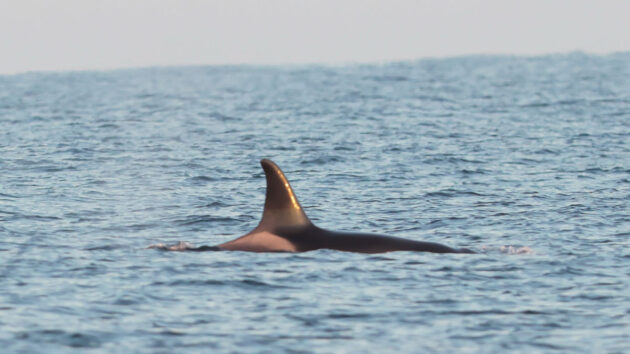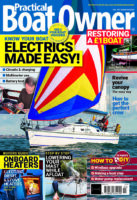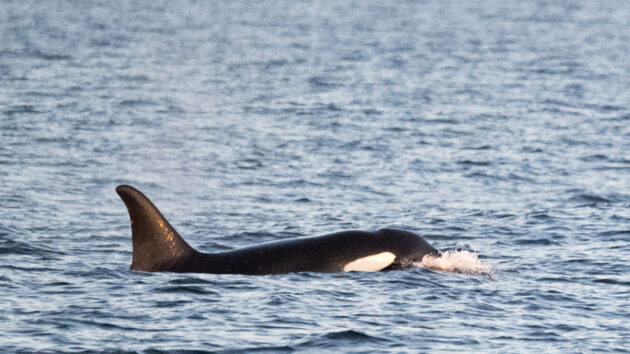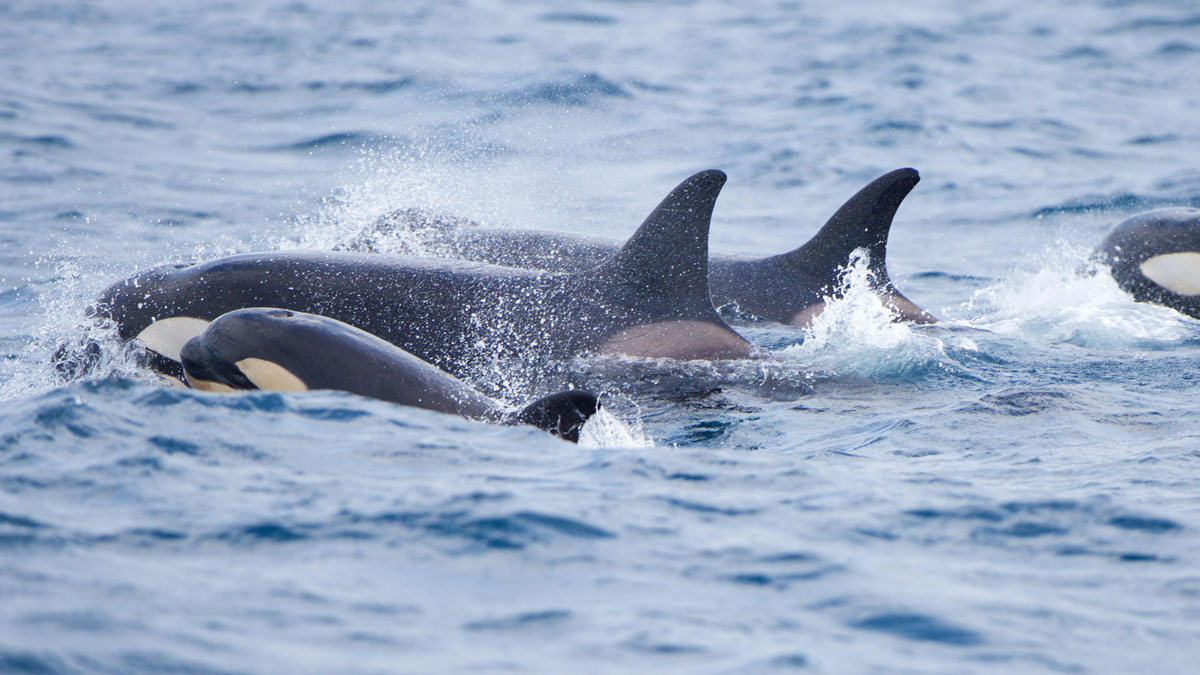Two orcas spotted off the UK’s south-west coast are not part of the pod which is responsible for rudder interactions and yacht damage off the Portuguese and Spanish coasts and the Strait of Gibraltar, it has been confirmed
The female orca pair spotted by boat crew near the Isles of Scilly have been identified as members of a tiny pod, which has previously been sighted in Portugal and the Strait of Gibraltar, but are a different ecotype from Iberian orcas, being much larger and not socialising with the Iberian orcas.
Sarah Matthews of Dolphin Zone said: “They are registered in the Iberian Orca catalogue for management purposes, but are very different from their Iberian-type counterparts.”
The Wildlife Trust said the sighting was the first time Iberian orca had been seen in Cornish waters.
Matthews used the skipper’s photographs, together with public information available via the Atlantic Orca Working Group (GTOA), to identify the mammals – which are the largest members of the dolphin family –as C001 and C002, female orca but from the Vega pod, which used to have three members but now only has two.
She said: “I have found out they are aged at least in their 30s.
“We don’t know whether they have any other family.
“They have previously been sighted in Portugal and the Straits of Gibraltar, but the Vega pod’s movements remain mysterious.”
First sighting of orcas in UK waters

Eagle-eyed boat crew Isaac Ogden on charter with the Joint Nature Conservation Committee spotted the fins. Photo credit: Joe Pender/www.scillypelagics.com
Joe Pender was the skipper aboard the Scilly Pelagics seabird survey whose crew spotted fins about a mile away near Bishop Rock, St Agnes.
He told PBO: “On 9 July, while on charter with the Joint Nature Conservation Committee (JNCC), conducting a Storm Petrel flight height survey, we found ourselves south of the Pol Bank reef, south-west of the Bishop Rock Lighthouse.
“Around 2050 we began our journey back to St Mary’s, choosing to pass by Bishop Rock on our return.
“As we headed in that direction, Isaac Ogden – who was crewing with me – spotted some fins over a mile away.
“Initially, we thought they might be the bottlenose dolphins we’d sighted earlier.
“However, it quickly became clear that the fins were far too large.
“To our amazement, we realised we were observing orca – a truly incredible and rare encounter in Scillonian waters.”
He added: “We gradually approached, maintaining a safe and respectful distance, and spent around 30 minutes observing the pod.
“The sighting was surreal, and the excitement among everyone on board was palpable.
“Eventually, we continued on our way to St Mary’s, watching as the orcas headed off westward into the open sea.”
The fast-moving mammals were not expected to stay in the area.
Cornwall Wildlife Trust’s Rebecca Allen said the Environmental Records Office for Cornwall and the Isles of Scilly had also recorded seeing “more tuna, common dolphin, humpback whales” and “a big boom in the octopus population.”
She added: “It’s probably linked to warming seas and pushing populations of species further north.
“As much as it’s really exciting, it’s a bit of a concern.”
The Cruising Association’s Orca project lead, John Burbeck, said: “It’s fascinating to hear that orca have been sighted off the south-west coast of the UK.
“They are truly spectacular creatures.
“To reassure sailors, there have not been any reports of orca damaging yachts outside of the Bay of Biscay and the Atlantic Spanish and Portuguese waters.
“This is because the only orca involved are a small number of the tuna-eating orca who are based in the Gibraltar Strait.
“While it is possible that the orca spotted off the South West are tuna eating, they are not the orca which damage yachts.”
Orca encounters on boats: what you need to know
Katy Stickland talks to marine scientists, sailors and The Cruising Association to find out the most effective way to safely…
Sprinkling sand ‘deters orcas’ according to Cruising Association
Sprinkling sand around the rudder is now a recommended deterrence of orca – which have damaged more than 250 yachts…
“Orca damage will be covered” – Insurers reassure boaters bound for hotspot region
Sailors bound for the orca interaction hotspots of the Strait of Gibraltar and Iberian Peninsula can feel reassured that their…
Want to read more articles like this?

A subscription to Practical Boat Owner magazine costs around 40% less than the cover price.
Print and digital editions are available through Magazines Direct – where you can also find the latest deals.
PBO is packed with information to help you get the most from boat ownership – whether sail or power.
-
-
-
- Take your DIY skills to the next level with trusted advice on boat maintenance and repairs
- Impartial, in-depth gear reviews
- Practical cruising tips for making the most of your time afloat
-
-
Follow us on Facebook, Instagram, TikTok and Twitter







